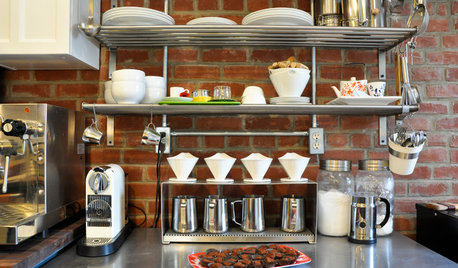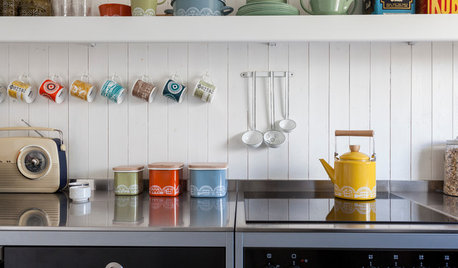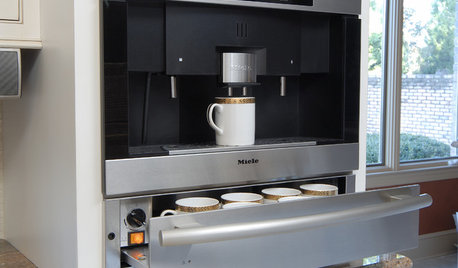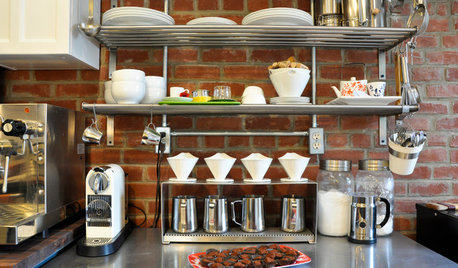Eggshells and coffee grounds
adriennepratt
11 years ago
Related Stories

DECORATING GUIDESNo Neutral Ground? Why the Color Camps Are So Opinionated
Can't we all just get along when it comes to color versus neutrals?
Full Story
BASEMENTSBasement of the Week: Clever Details Update a Below-Ground Lounge
Lower-level design reaches new heights with rearranged ductwork, lighting, a new ceiling and modern styling
Full Story
CONTEMPORARY HOMESHouzz Tour: A Brave Addition Breaks New Ground
An Edwardian cottage gets a radical renovation with a dynamic deck that wraps a couple and 2 children in style
Full Story
KITCHEN DESIGNSimple Pleasures: Wake Up and Smell the Coffee
Slugging down any old sludge while pulling on socks is no way to start the day. Learn to brew amazing java and savor the experience here
Full Story
LIFEHow Do You Make Your Tea and Coffee in the Morning?
A morning cup is a must for many, and preparation comes in many guises. We look at coffee and tea habits across the Houzz community
Full Story
KITCHEN DESIGNCoffee Bars Energize Any Room
Love coffee? Wake up to these great designs for a café-style area in the kitchen, guest room and even bathroom
Full Story
FURNITUREHow to Pick Out a Coffee Table
Get a great fit for your room and your lifestyle by considering a coffee table’s size, features and aesthetics
Full Story
KITCHEN DESIGNWake Up Your Kitchen With a Deluxe Coffee Center
Get all the ingredients for the perfect morning jump-start with a station dedicated to your cup of joe
Full Story
SHOP HOUZZHouzz Products: Set Up Your Dream Coffee Station
Wouldn’t it be nice to have your own café that never closes? With these tools and accessories from the Houzz Products section, you can
Full StoryMore Discussions







Karchita
adrienneprattOriginal Author
Related Professionals
Surprise Landscape Architects & Landscape Designers · Conroe Landscape Contractors · Gresham Landscape Contractors · Hawaii Landscape Contractors · Kearny Landscape Contractors · Mequon Landscape Contractors · Porterville Landscape Contractors · San Pedro Landscape Contractors · Secaucus Landscape Contractors · West Chicago Landscape Contractors · Centreville Decks, Patios & Outdoor Enclosures · King of Prussia Decks, Patios & Outdoor Enclosures · Lake Arrowhead Decks, Patios & Outdoor Enclosures · Livingston Decks, Patios & Outdoor Enclosures · Tomball Decks, Patios & Outdoor EnclosuresKimmsr
toxcrusadr
adrienneprattOriginal Author
billums_ms_7b
luckygal
Kimmsr
jolj
Laurel Zito
oliveoyl3
pinks
jolj
adrienneprattOriginal Author
Karchita
Karchita
jolj
Karchita
toxcrusadr
jolj
Karchita
toxcrusadr
ma_guy
jolj
toxcrusadr